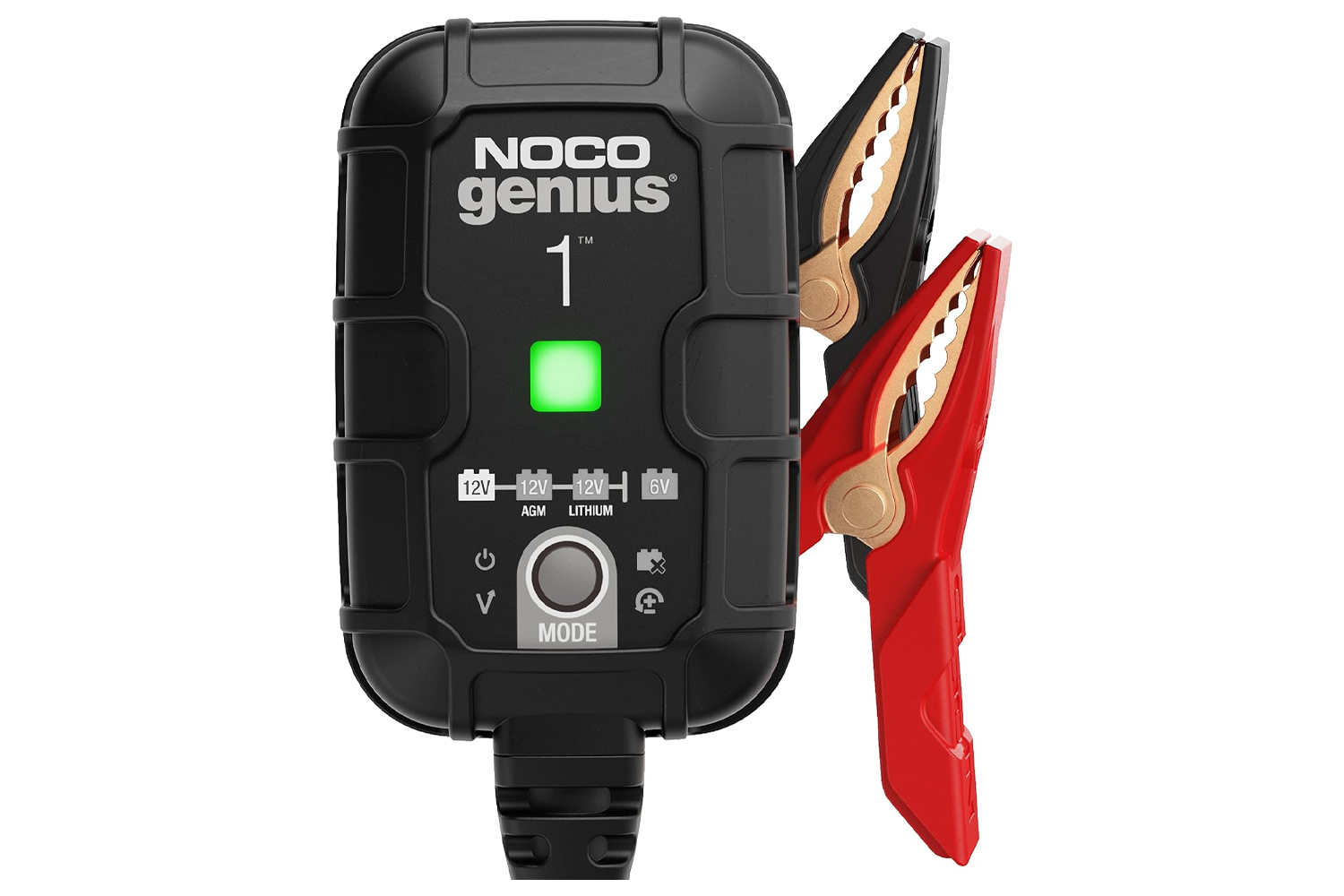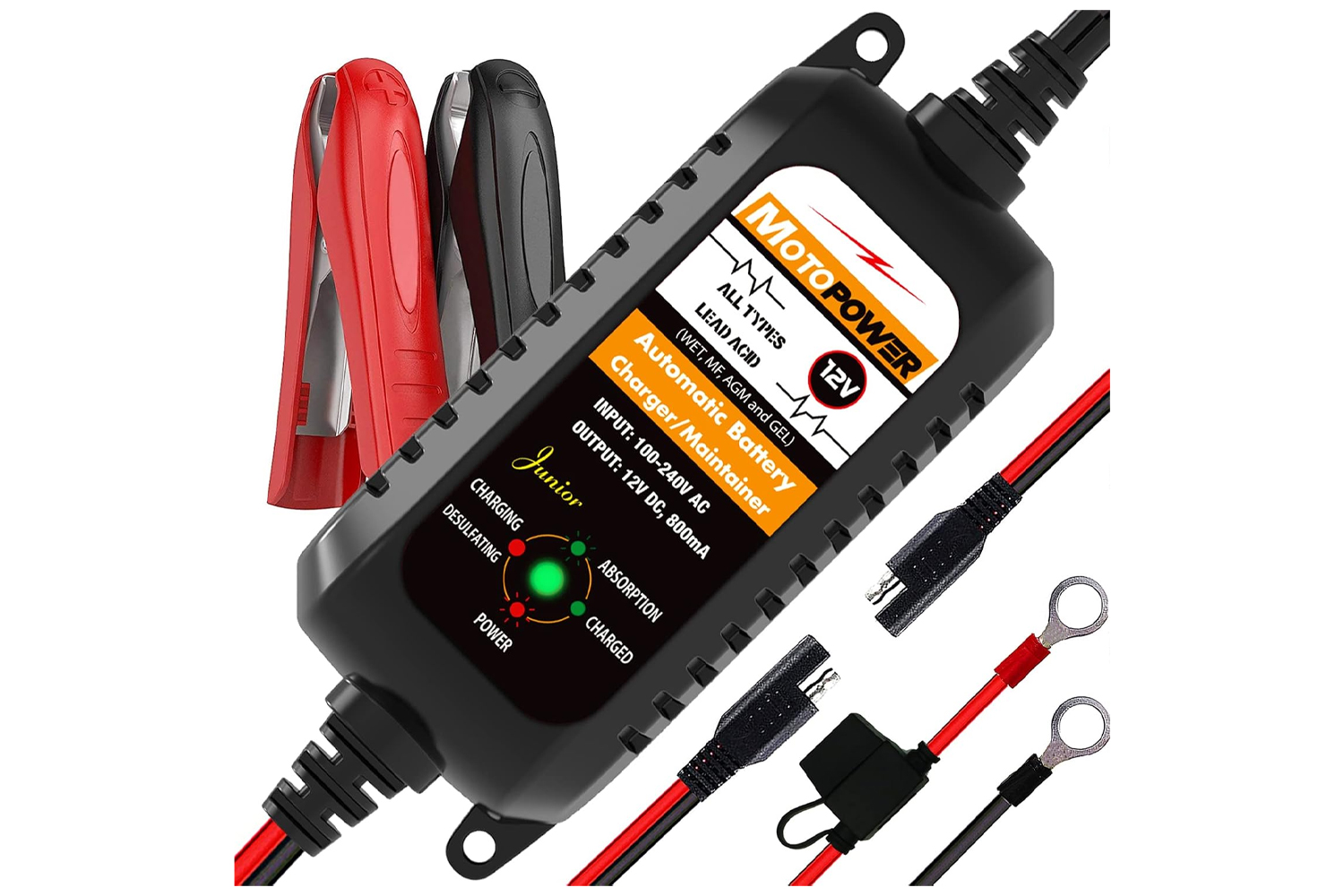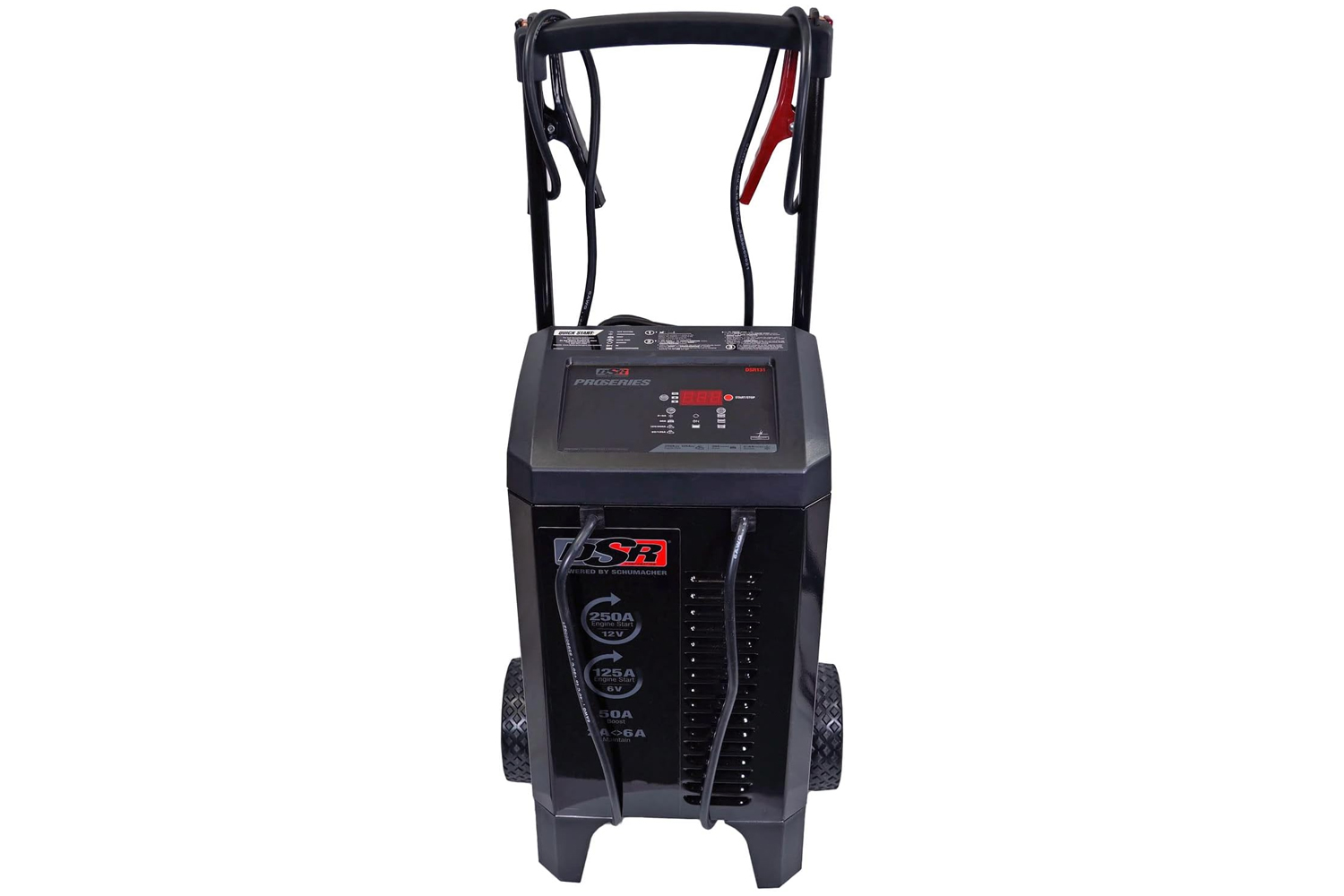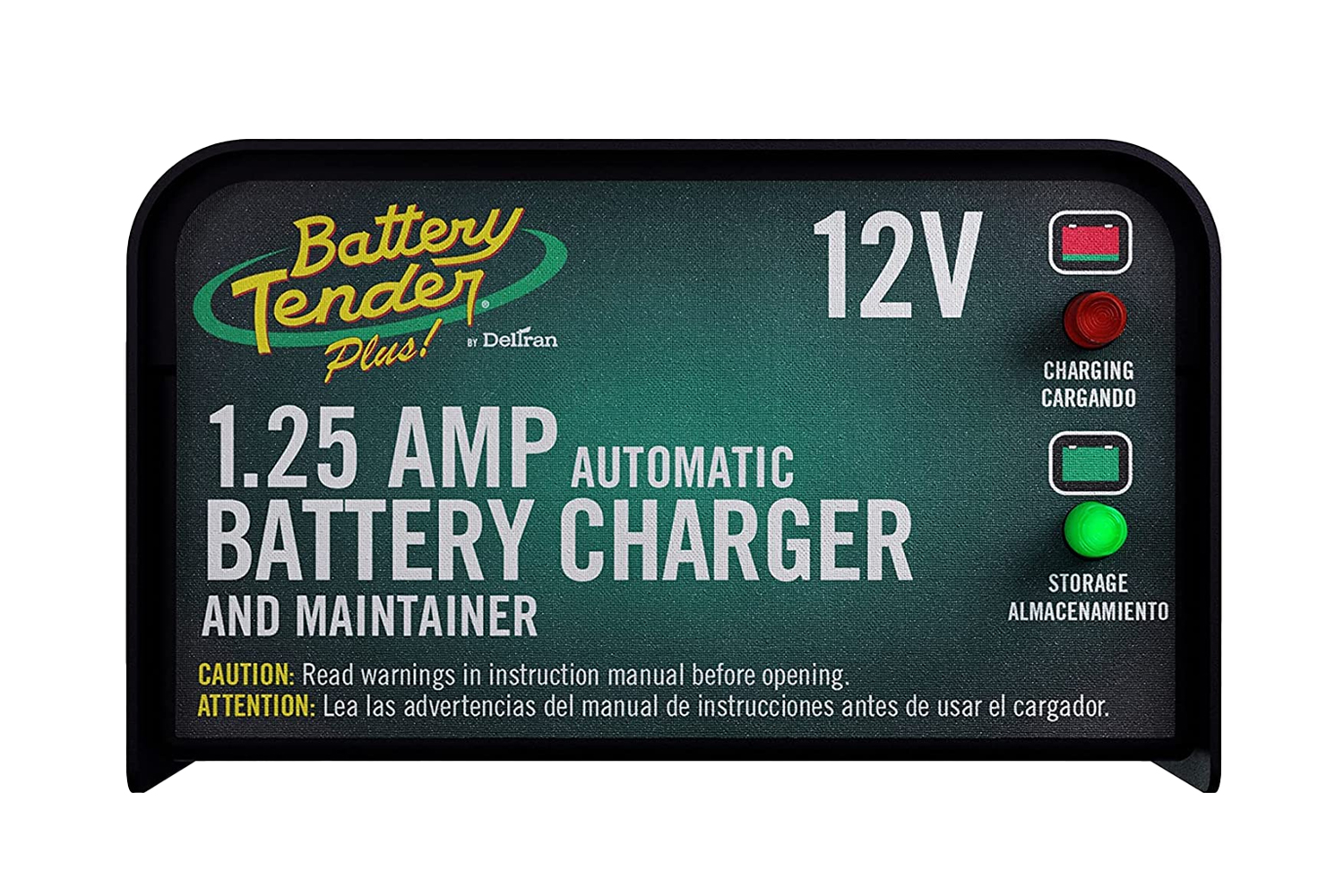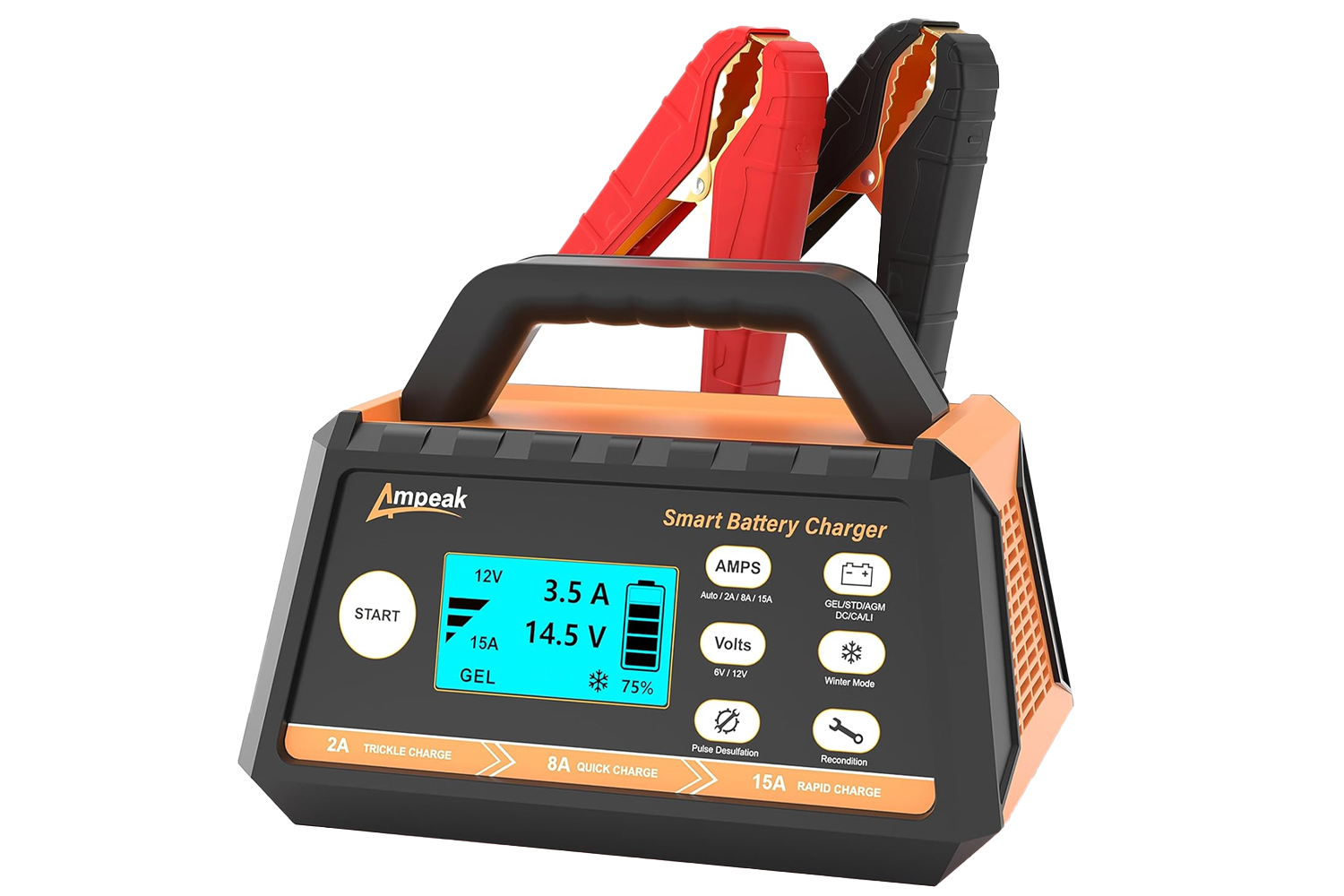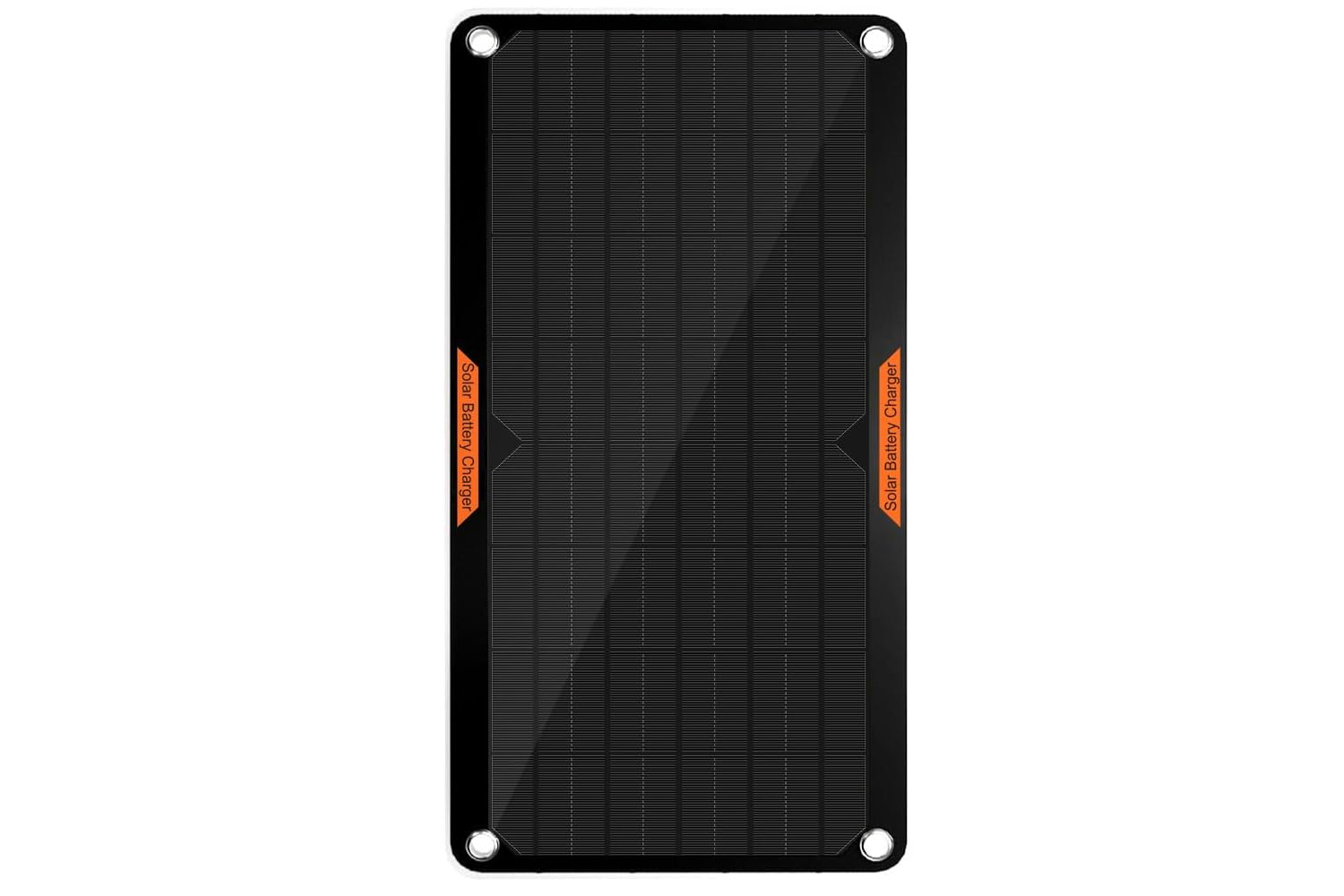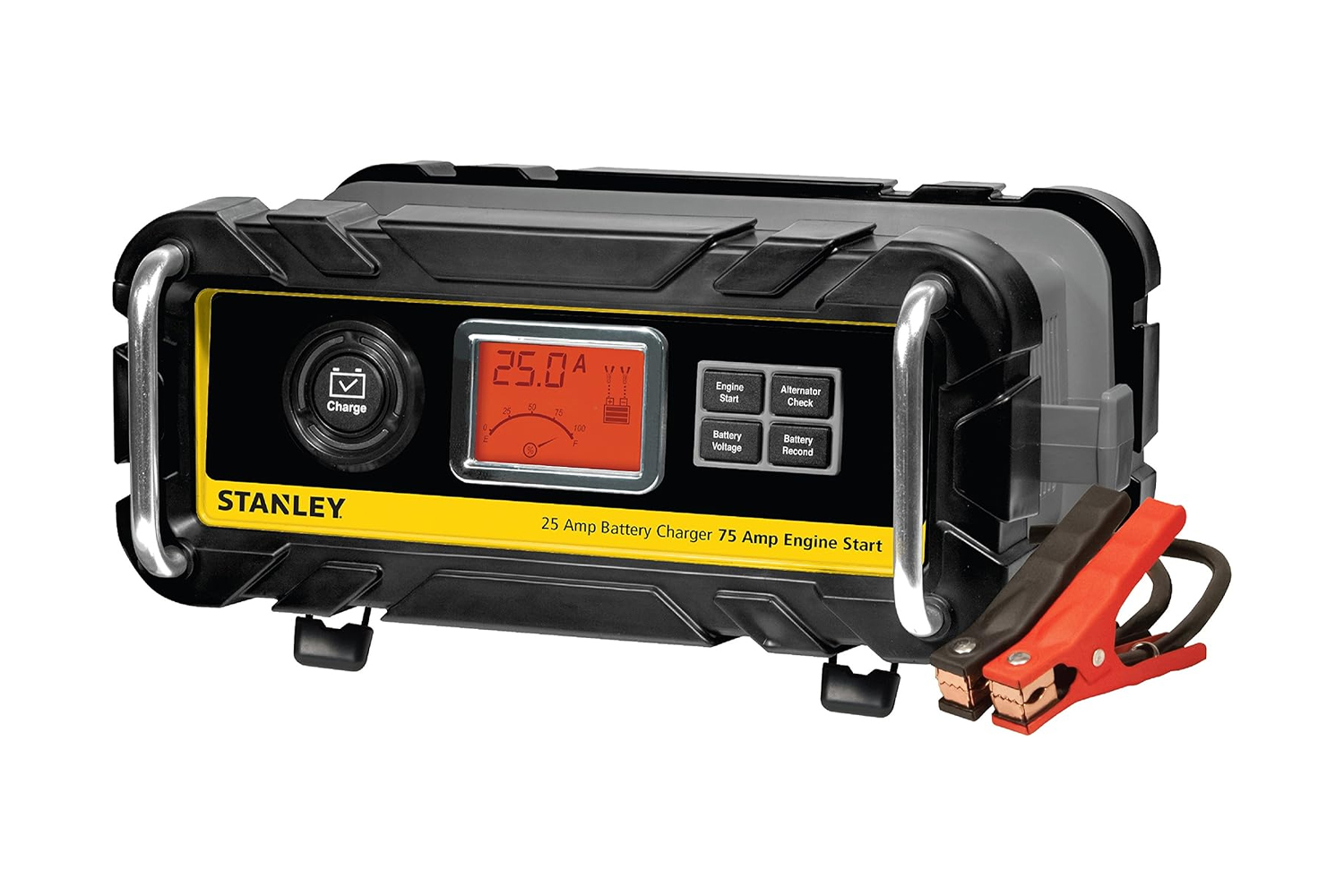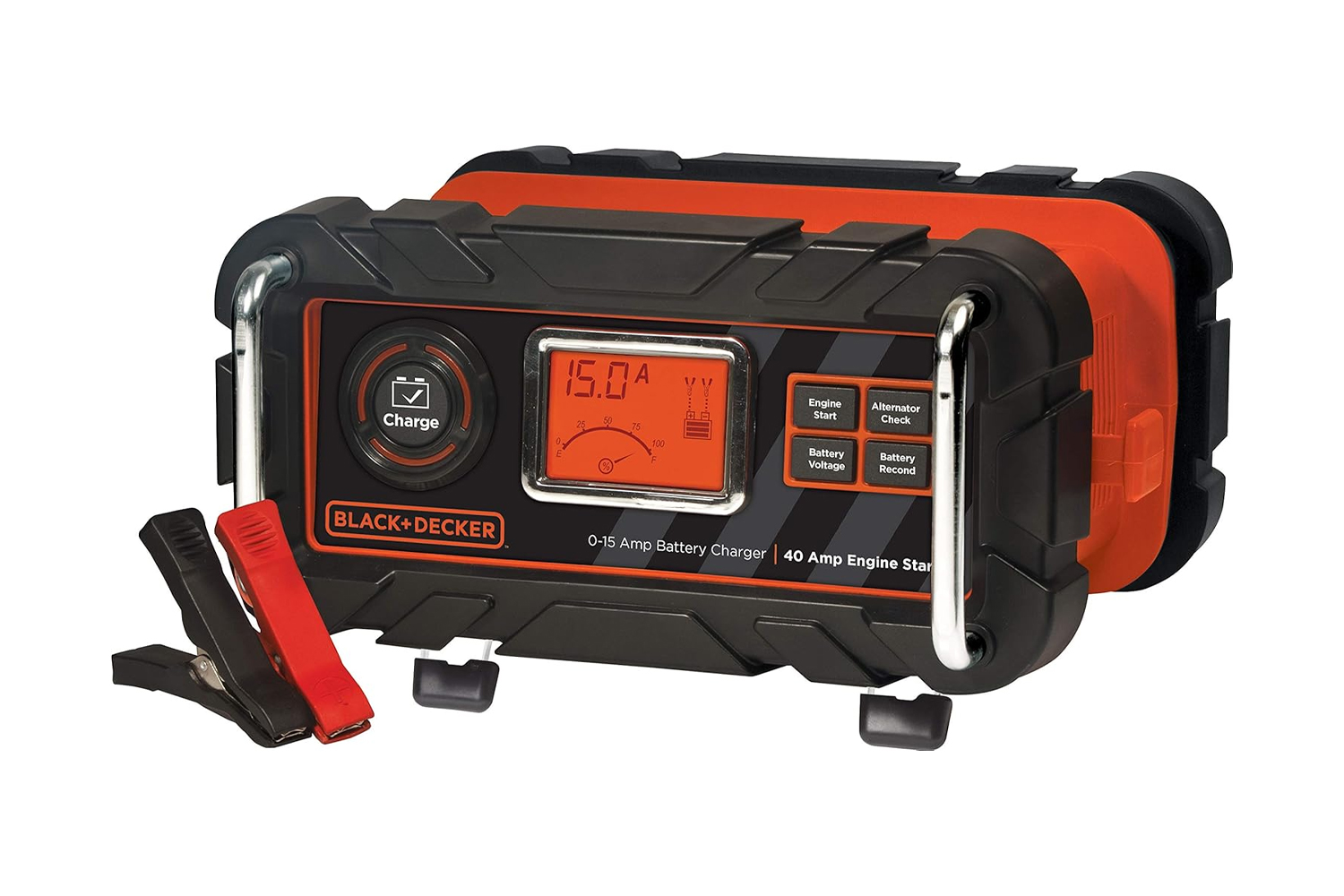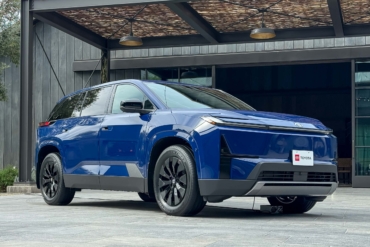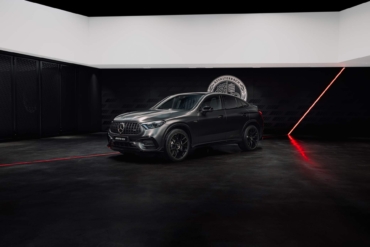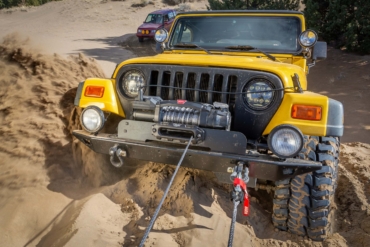If you’ve ever walked out to your car and found a dead battery, you know how important it is to have a car battery charger on hand. Nobody has time to wait for roadside assistance or a jumpstart from a Good Samaritan, which is why most people invest in a battery charger for additional peace of mind.
A good battery charger is a wise decision for any household, but you must ensure that it’s a reliable product. Otherwise, you could end up in the same boat with your engine not starting. Options like the NOCO Genius1 are an all-in-one solution at an affordable price as a battery maintainer, trickle charger, and battery desulfator that works on both 6V and 12V batteries. Premium, professional-grade designs like the Schumacher DSR131 offer a 250-amp charging current: With a burly construction, this 33-pound device rolls on wheels with a pull handle and is ideal for top auto enthusiasts.
To learn more about car seat covers and a more in-depth analysis of how they can vary, read the Buyer’s Guide or jump to the Price & Value summary. Still weighing your options? Consult our Comparison Chart to see how car battery chargers stack up.
Editor’s Note: On October 28, 2024, we published an updated version including specs, pros, and cons plus the Price & Value and How We Tested sections.
The Best Car Battery Chargers of 2026
NOCO Genius1
- Voltages: 6V, 12V
- Charging Current: 1 amp
- Weight: .77 lbs
- Dimensions: 3.5" x 2.3" x 1.3"
Pros
- Thermal sensor automatically adjusts charging based on ambient temperatures
- Automatic detection and repair of sulfation and acid stratification
Cons
- Could include a longer extension cord
MOTOPOWER MP00205A
- Voltages: 12V
- Charging Current: 0.8 amp
- Weight: .75 lbs
- Dimensions: 2" x 4.1" x 1.5
Pros
- Detects sulphated batteries
- Economic price
Cons
- Not the best durability
Deltran Battery Tender Plus 021-0128
- Voltages: 12V
- Charging Current: 1.25 amp
- Weight: 1.45 lbs
- Dimensions: 2.93" x 3.25" x 4.87"
Pros
- 10-year warranty
- Lifetime customer support
- Affordable
Cons
- Not for jumpstarts
- Voltages: 6V, 12V
- Charging Current: Three options — 2 amp, 8 amp, 15 amp
- Weight: 2.43 lbs
- Dimensions: 5.29" x 9.76" x 3.91"
Pros
- Winter mode trickle charging in freezing temps
- Helps extend battery lifespan
Cons
- Working temp range claims to be a low of 32 degrees Fahrenheit
- Not for charging a dead battery
- Voltages: 12V
- Charging Current: 1.68 amp
- Weight: 1.01 lbs
- Dimensions: 14.37" x 7.68" x 0.79"
Pros
- Waterproof
- Portable
- Integrated solar panel
Cons
- Exposure to elements lowers lifespan despite weatherproofness
- Voltages: 12V
- Charging Current: 15 amp
- Weight: 6.45 lbs
- Dimensions: 5.75" x 12.38" x 9.75"
Pros
- Automatically switches from fast charge, to top-off, to trickle charge
- Integrated power cord garage
Cons
- Cannot manually set the max charge current
- Voltages: 12V
- Charging Current: 15 amp
- Weight: 5.5 lbs
- Dimensions: 6" x 10" x 12"
Pros
- Features an alternator check
- Includes charging time reference chart for various engines
- Easy to read interface and buttons
Cons
- Lacks on/off switch
- Limited 1 year manufacturer warranty
- Voltages: 6V, 12V
- Charging Current: 15 amp
- Weight: 3 lbs
- Dimensions: 3.63" x 10.5" x 7.75"
Pros
- 2-in-1 rapid charger and maintainer
- Pop-up carry handle
- LED indicators
- Lightweight and streamlined for sleek storage
Cons
- Display does not continuously show percentage of charge and voltage — must initiate
Car Battery Chargers Comparison Chart
| Car Battery Chargers | Price | Voltages | Charging Current | Weight | Dimensions |
|---|---|---|---|---|---|
| NOCO Genius1 | $40 | 6V, 12V | 1 amp | .77 lbs | 3.5″ x 2.3″ x 1.3″ |
| MOTOPOWER MP00205A | $22 | 12V | 0.8 amp | .75 lbs | 2″ x 4.1″ x 1.5 |
| Schumacher DSR131 ProSeries | $289 | 6V, 12V | 250 amp | 33 lbs | 11.8″ x 11.8″ x 24″ |
| Deltran Battery Tender Plus 021-0128 | $60 | 12V | 1.25 amp | 1.45 lbs | 2.93″ x 3.25″ x 4.87″ |
| Ampeak Smart Charger | $90 | 6V, 12V | 2 amp; 8 amp; 15 amp | 2.43 lbs | 5.29″ x 9.76″ x 3.91″ |
| OYMSAE Solar 12V Battery Charger | $60 | 12V | 1.68 amp | 1.01 lbs | 14.37″ x 7.68″ x 0.79″ |
| Stanley BC25BS Smart 12V Battery Charger | $97 | 12V | 15 amp | 6.45 lbs | 5.75″ x 12.38″ x 9.75″ |
| Black+Decker BC15BD | $88 | 12V | 15 amp | 5.5 lbs | 6″ x 10″ x 12″ |
| Schumacher SC1304 Smart Battery Charger | $92 | 6V, 12V | 15 amp | 3 lbs | 3.63″ x 10.5″ x 7.75″ |
How We Tested Car Battery Chargers
Our Expert Testers
Our esteemed GearJunkie tester and Buyers Guide author, Derek Mau, led the curation and field testing for this guide. A regular work day for Mau involves testing almost anything with four tires and a steering wheel. He obsessively researches and shops for the best deal. Of course, he shares his findings through detailed and informative writing and reviews of all things automotive for GearJunkie.
Our Testing Grounds
Mau is based in Idaho, where it’s hot and sunny in the summer and gets frosty in the winter, making it an ideal place to test car covers in the full range of elements and weather conditions.
Our Testing Process
Mau first edited and published this piece in 2022. We are working with automotive specialists to complete hands-on field testing including car battery chargers.

Buyer’s Guide: Choosing the Best Car Battery Charger
Owning a decent battery charger is something you want before you need it. You might not appreciate the benefit of having one of these at your house until your car battery is dead. Then, you’ll realize their worth and be glad you made the investment.
When you select an automotive battery charger, there are several factors you’ll want to consider. Fundamentally, you want access to all the features you need to get your car running quickly or keep the battery fully charged. So here’s what we recommend keeping an eye on.
Voltage
Many modern chargers are compatible with all car batteries, regardless of their size. Top car battery chargers handle both 6V and 12V vehicles with ease.
Amperage
An entry-level battery charger comes with either 10A or 20A capacities. If you want something midrange, you’ll opt for a 20A charger with a 55A to 100A boost mode. If you’re a professional who routinely works on vehicles, it will make the most sense to invest in something up to 60A for the standard charge mode and 275A for the jumpstart mode.
Safety Features
Ensure that the battery charger has short-circuit, overload, over-current, overcharge, and overvoltage protection so you stay safe at all times.
Maintenance Mode
The maintenance mode exists to maintain a fully charged cell using minimal power. This mode applies when the car sits for long periods or moves into long-term storage.
Trickle Charge
A trickle charger feeds power to the battery at a slow and steady rate. Once fully charged, the unit automatically goes into float mode. This mode prevents overcharging the battery. Some chargers start trickle charging at 85% of the full charge, while others wait until 95%. Whenever it kicks in, the trickle charge helps to maintain a 100% full charge at a tiny rate while keeping the battery safe from overcharging.
Battery Diagnostics
Some of the best car battery chargers have safeguards that signal users when the battery isn’t connected correctly. Additionally, you’ll find a range of models that feature internal testing mechanisms to detect sulfated, discharged, or bad cells.
Price & Value
Budget
On the low end, you’ll find car battery chargers like the NOCO Genius1 ($40) and MOTOPOWER MP00205A ($22). At less than $50, you’re getting a fairly compact and light tool. The tradeoffs are durability, waterproofness, cord length, and charging current. But for many average applications, these could do just fine.
Mid-Tier
The majority of our favorite options fall between $50 and $100. More developed chargers include options like the Stanley BC25BS Smart 12V Battery Charger ($97) and Schumacher SC1304 Smart Battery Charger ($92). These options are a bit heavier, slightly larger, more stout, and typically offer a higher charging current. The displays can be better and easier to read, too. Details, such as the retractable handle that doubles as a power cord wrap on the SC1304, are a nice addition for ease of use.
Premium
At the high end, designs such as the Schumacher DSR131 ProSeries ($289) are very robust, have an excellent interface, and reach well into triple digits. These designs can be professional grade, like the Schumacher SC1304, meaning they’re overbuilt for most general users, but if you’re an automotive enthusiast, this could be exactly what you’re looking to add to the tool shed.

Frequently Asked Questions
You always want to be sure you are charging your car battery correctly. The wrong volts or high amperage settings can lead to overheating or charging it too fast. Leaving the charger unattended or not using it correctly is another mistake people often make.
Luckily, most high-quality chargers have safeguards that protect the battery from getting overcharged. These “smart” chargers taper the charging rate as the battery approaches full capacity. Afterward, it will automatically switch off when the charge is full and go into maintenance mode. Charging your battery overnight with the help of a smart charger usually achieves a complete charge. For proper use, always check the operating guidelines of your battery charger.
A trickle charger can prevent a battery from draining if you have vehicles in storage or don’t start them too often.
Basically, a car battery trickle charger is a device that helps maintain the power of your battery and prevent self-discharge, so you never end up with a flat battery. Essentially, it charges slowly at a low current.
Be aware that older chargers can also lead to overcharging your battery if powered on for longer than necessary. Thus, look for a trickle charger that automatically shuts off when the battery reaches a full charge. Otherwise, you must monitor the battery and disconnect it yourself.
Not all trickle chargers come equipped with this automatic feature, so consider a float charger (also called a “smart charger”). Float chargers have intelligent technology that switches off when the charge is complete and starts again when the charge falls to a specific level.
How long you leave the charger connected to the battery depends on the type of charger and the amount of power your battery needs to reach 100%. Generally, manual chargers require close monitoring since they will not shut down automatically once the battery is at full capacity and warrant disconnecting the cables.
Smart 12V battery chargers have evolved into intelligent, microprocessor-controlled battery charger-maintainers that turn on and off to avoid overcharging. They also have the ability to recondition car batteries. Moreover, they can detect weak batteries and automatically shut off power if the user crosses the battery cables.
Refer to your battery charger owner’s manual for information on how to tell when your battery is fully charged.
Using a battery charger for supplying power was a common function in older models. Most newer models have an electronic safeguard that stops them from providing voltage to anything other than a battery. Thus, you cannot use them as a power supply.
A car battery charger must be disconnected after charging a battery to optimal voltage.
On the other hand, a battery tender or maintainer can stay connected to a battery for longer periods. These devices detect a drop in voltage, automatically switch on to recharge at low current, and then shut off once the battery reaches full capacity.
Battery tenders are ideal for storing parked vehicles over long periods.

The Best Portable Car Jumpstarters of 2026
We’ve outlined the best portable car jumpstarters available. Let’s get started and find the one that serves your needs.

The 10 Best Car Detailing Kits
The best car detailing kits include a product for every detailing task. Check out our selection of the top choices on the market.

